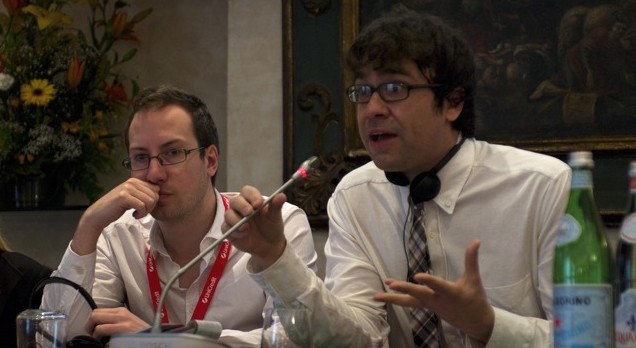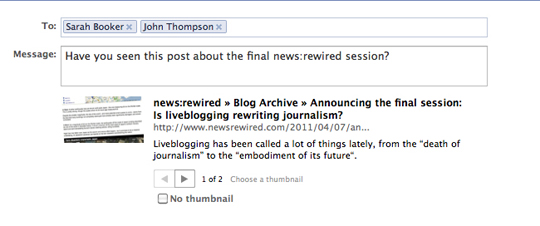
A member of the audience in this morning’s online community engagement session at #ijf11 asked the panelists this interesting question:
Are paywalls entirely incompatible with community engagement?
The general response from the panel was no, not necessarily. Justin Peters from the Columbia Journalism Review compared community engagement behind the paywall to a private members club:
At a private club, membership is restricted, so there are less people there, but you could say that they feel more connected to each other and to the club. The quality of the interactions and ties that are forged are stronger.
But, Peters added, “the bet is, does anyone want to join the club? Is it sustainable?”
Ed Walker, online communities editor at Media Wales, (pictured left) referred to Joanna Geary’s keynote speech at Journalism.co.uk’s most recent news:rewired conference, in which the Times’ communities editor talked up the value of having a smaller number of readers that the publisher knows more about, and who engage with the content in a more valuable way.
With Media Wales, Walker said that “it is better to have two really well informed comments than twenty that just say something like “I agree”.
How to approach comments formed the heart of the discussion during the session, with panelists addressing how publishers can drive comments on more complex or long-form content and whether good comments should be promoted somehow.
Walker said that the problem with users commenting on certain stories and not others was to do with confidence. He said that Media Wales had tried to address the issue by encouraging users to use recommend buttons as well as commenting.
We turned to recommend buttons, because people don’t have the confidence to comment on the large investigations or complicated stories. And when you look at the stories that have been recommended, compared with those that have comments, they are often very different.
Walker also described how Media Wales often take the best comments and publish them in the next days newspaper, often alongside a related article, as a way of encouraging print readers to become more involved online.
In terms of publishers attempting to promote and reward good quality comments, the Huffington Post’s Josh Young said that the site encouraged its quality commenters by offering badges for a history of good contributions, but he stressed that it was essential for news sites not to shut out comment threads that became off-topic conversations.
Its great that people are talking on your website instead of in their living room, you should be proud of that. If you can restructure, rearchitect your site so that poeple can have conversations like they have in cafes and in their living rooms, you have really succeeded.
Young added that the Huffington Post had experimented with two ways of promoting quality comments on the site:
You can absolutely find ways to elevate the most enlightened comments. At the Huffington Post we had two ways of doing this, one was an editorial way in which the writers indicated which comments were good, then readers would get a little badge that indicated they had a history of good comments in politics, for example.
The other way was a machine learning engine. We took a thousand comments and entered looked for statistical tendencies about what makes a great comment and what doesn’t. It doesn’t work perfectly but it works beetter and better as we continue to improve it.
Paola Bonomo, head of online services at Vodafone Italia, said that she thought that using technology to improve the quality of comments was a good thing, but echoed that a balance was needed between rewarding quality comments and heavy moderation, which just discourages people across the board, she said.
Ed Walker took part in a similar session at Journalism.co.uk most recent news:rewired conference. You can see video from the session here: news:rewired video: Building an online community from scratch
See the full agenda for Journalism.co.uk’s upcoming news:rewired at this link.



